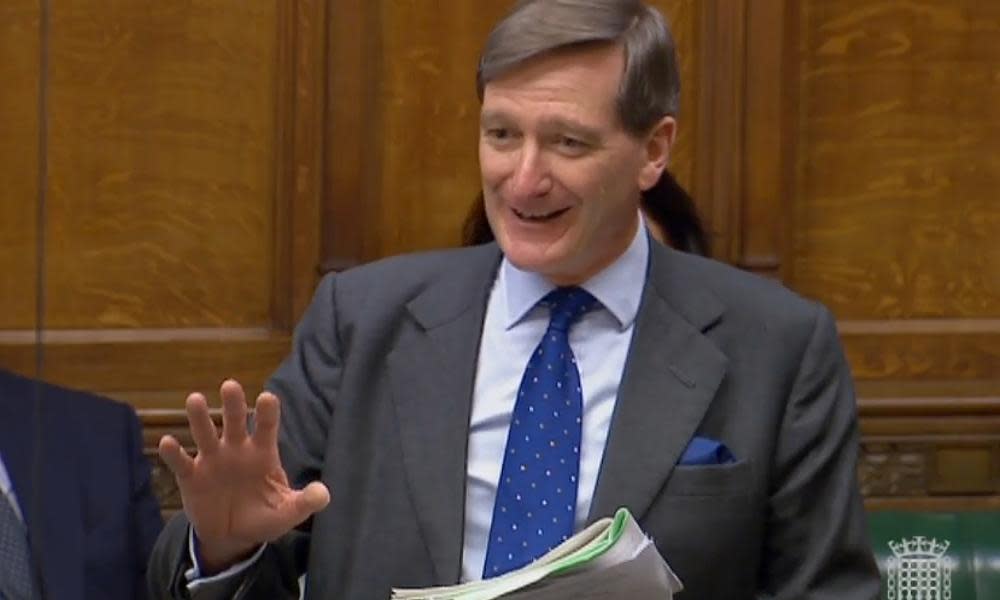The government has split into contradicting power bases on Brexit

For all the rhetoric about a “no deal” being better than a “bad deal”, I have yet to come across a Conservative colleague who does not accept that a failure to reach an agreement on our terms of withdrawal would be a major crisis for our country. In the absence of some agreement, the barriers to trade, commerce and movement would be such as to bring us to a complete halt.
Fortunately this may be an unlikely outcome, as it must be in the interests of all parties that this should not happen, even if we fail to get any deal on a future economic relationship with the EU. But the fact that negotiations have yet even to get over the hurdle of reconciling our acceptance of the need to uphold the Good Friday agreement with not wishing to be in a customs union, and the diminishing time available to resolve a large list of issues ought to give us pause for thought.
As the withdrawal bill, which is all about process not outcome, goes through its final stages in parliament it is inevitable therefore that there should be focus on the possibility of no deal. Parliament has a portcullis as its emblem because of its duty to safeguard the nation. How it brings its view to bear to influence government in such an event cannot be characterised as illegitimate.
Yet this is now where we find ourselves, with MPs and peers who are trying to provide for an assured mechanism for doing this through a parliamentary procedure where we can agree or dissent from the government’s approach described as traitors and vilified in sections of the press. It is said that we are trying to sabotage Brexit and the will of the people.
During the course of debate last week the prime minister undertook to a group of us that she understood our concerns and would discuss with us how they could be addressed. In return we agreed not to vote immediately on one possible solution. A very productive negotiation followed, at the end of which we had a text that provided what I felt was needed – amendable government motions in the Commons that would be advisory and not mandatory.
Minutes before the amendment was to be tabled, I was told that the text had been changed. Instead of the Commons being able to express a different view from government if necessary, it would only be able to note the government’s position, making the amendment valueless. No proper explanation has been offered for this. The one most promoted is that the change is needed to avoid the risk of a credible legal challenge in the courts if the Commons disagrees with the government and the government refuses to act on the opinion of the Commons. None of us who were negotiating on either side saw this as a risk on the text we approved. One of the reasons the negotiation took place was to ensure that this risk was removed.
The second explanation was that some believed that the government should demand that any successful amendment by the Commons had to have the status of a vote of no confidence. But the whole purpose of the amendment procedure is to give an opportunity to resolve differences without adding to the level of crisis. This would therefore also defeat its object. If the Commons wants to trigger a vote of confidence, it can take place at any time.
I am afraid the reality is the government now seems to have divided into contradicting power bases that cannot deliver collectively on assurances given to backbenchers when they seek them. This is not a good place to be, as it erodes trust. We have collectively to face up to the fact that in the two main political parties there are substantial disagreements on the best form Brexit should take. It should be possible to disagree and seek compromise while retaining trust even when, particularly on matters of process such as this one, we may end up in different lobbies if we can’t resolve the disagreement. We all need to challenge the virulent hatred that is being stirred up quite deliberately to silence debate.
I hope that in the coming week we will be able to take things forward in a way that is seen as constructive. Parliament is not trying to usurp the role of the executive in international negotiation. It is entitled to require mechanisms so that it should be assured that in the unusual circumstances we face it can perform its role properly.
Dominic Grieve QC is the Conservative MP for Beaconsfield and a former attorney general

 Yahoo News
Yahoo News 
